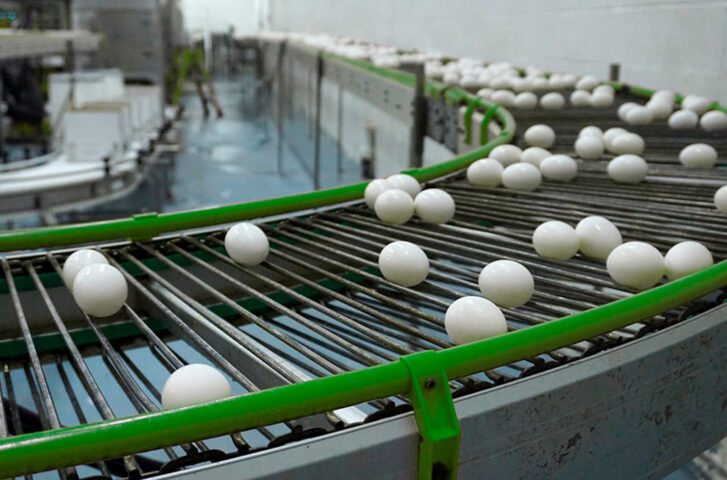
The work of Iowa farmers is the vital core of the state’s egg industry. Egg production is of great interest in Iowa, as they lead the nation in egg production, taking care of nearly 60 million laying hens that produce approximately 16.5 billion eggs per year. Iowa egg farmers achieve this incredible level of production by providing the highest level of care for their hens, due to their history of taking advantage of new technologies and ongoing research into welfare and the search for new production alternatives. The number of eggs produced in Iowa is enough to feed 56 million U.S. consumers per day. In addition, Iowa egg producers process more eggs than any other U.S. state into frozen, liquid, dried or specialty egg products. This industry makes Iowa a major purchaser of other agricultural products because laying hens consume about 9 million tons of corn and 4.7 million tons of soybeans each year.
Characteristics:
The egg market in Iowa is responsible for $2 billion in annual sales and contributes mightily to a very positive employment picture in Iowa, as according to the Iowa Egg Council, egg producers are responsible for creating more than 7,100 jobs.
Iowa, Ohio, Indiana, Pennsylvania, and California are the top five egg-producing states in the United States. Together they produce 50% of the nation’s eggs. Americans no longer consume the same number of eggs as they once did, yet eggs remain a popular food and in high consumer demand. Per capita egg consumption was 402 eggs per year at its peak in 1945. Today, it is around 282 eggs per person per year and has remained fairly constant in recent years.
Most of Iowa’s egg production goes to satisfy domestic demand, but they also contribute positively to the U.S. export economy.
Several factors account for the phenomenal growth of the egg industry in Iowa.
Increases in population and per capita egg consumption have fueled an annual expansion rate of egg production. It also has competitive advantages due to lower feed costs than competing states because of its location in an area of high raw material production. Iowa has taken advantage of the rapidly growing market for shell or “processed” eggs, which involve lower transportation costs to major population centers on the east and west coasts.
Conclusion:
There are several reasons why Iowa is the number one egg producer in the country, adding that the state’s egg farmers are not only very proud of their agricultural history, but have taken the experiences of that history and combined them with the use of new research and technology to become more efficient in producing nutritious, safe and delicious eggs. Because of this, we must continue to accompany the producers to continue to achieve a high quality product and demand in the United States.


